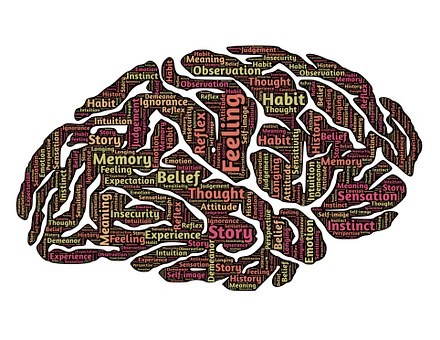Veterans of the markets generally agree that trading is largely psychological. That is one of the reasons why a trader with suboptimal strategy will trade profitably and another trader with a good strategy will be making losses. The method one trader uses to trader their way to financial freedom is what another trader uses and experiences pecuniary ruin.

Why are some people, who have access to excellent trading tools and strategies still struggle with the markets? It boils down to the mindset of the trader.
 To throw more light on this issue, you can read below a section from an article by Dr. Van K. Tharp, titled “Mental Strategies Versus Trading Systems.”
To throw more light on this issue, you can read below a section from an article by Dr. Van K. Tharp, titled “Mental Strategies Versus Trading Systems.”
“One of the best traders in the world told me once that he traded a simple trend-following system. He taught other traders how to trade that way and in the process, he claimed that often they developed systems that were more profitable than his! Yet he feels comfortable following his system so he sticks with it. What about the traders he has trained? Most never completed his training but a few found some success — yet none of his students has ever achieved the many years of consistent profits that he has. Why not? Great trading systems do not produce success; great traders produce success!
Years ago, I visited the office of another well-known trader to profile him and his colleagues. What struck me was that several of the people in his office were not very successful — even though they were trading the same exact methods that he had used to make hundreds of millions of dollars. Why? In part, his mental strategy was quite different from those of his colleagues. How you trade relates more to your mental strategies than to your trading system. Would you disagree? Then how do you explain the lack of success of some of the people in his office trading the same great system as that top trader…
Another well-known trader actually wants to teach people to be as successful as he has been. Thousands of traders have gone through his training yet he claims that only about 10% of his trainees will actually be successful using his methods. And the record seems to support his claim — people go through the training, but few come close to his level of success. Again, we have examples of people who know the rules of a winning system yet aren’t that successful.
The reason that these top traders make money while others who use the same systems do not is — systems don’t make money, traders do.
Then Do You Need a Trading System?
Since the trader, not the system, is responsible for success, do you need a trading system? Top traders use systems so yes, you still need to use a trading system. What then is the purpose of a trading system? My research indicates that trading systems are an essential shortcut for human decision making.
You have probably discovered that most human decision-making strategies are complex and slow. For example, think about the last time you bought a car and had to decide on the make, model, color, dealer, price, etc. You probably took several days at minimum to decide. Traders cannot afford that kind of time to make a decision. They need a shortcut or system in order to make quick decisions.
 Ideally, your trading system should signal an action and you should go through a quick “see/recognize/feel/act” strategy and take the trade. That is, you see the signal, recognize that it is familiar, and because it matches what you are looking for, you feel good about it and act on it. This is the simple mental strategy for action mentioned in the tasks of trading — but most traders cannot do that! They were successful in some domain (engineering, business, medicine, etc.) using a particular decision strategy and they want to continue to use that strategy in the market. As a result, when they see a signal to trade, they use their well learned decision-making strategy to decide if signal is valid and whether or not to act on the signal. Their “normal” strategy that worked well for them for so long does not work well at all in the markets. They end up feeling some emotions when they trade and they lose money….
Ideally, your trading system should signal an action and you should go through a quick “see/recognize/feel/act” strategy and take the trade. That is, you see the signal, recognize that it is familiar, and because it matches what you are looking for, you feel good about it and act on it. This is the simple mental strategy for action mentioned in the tasks of trading — but most traders cannot do that! They were successful in some domain (engineering, business, medicine, etc.) using a particular decision strategy and they want to continue to use that strategy in the market. As a result, when they see a signal to trade, they use their well learned decision-making strategy to decide if signal is valid and whether or not to act on the signal. Their “normal” strategy that worked well for them for so long does not work well at all in the markets. They end up feeling some emotions when they trade and they lose money….
….I believe that any trader or investor can win in the markets if he or she uses his or her mind properly. Nothing in my experience to date has given me any reasonable counter examples. Some people just operate at a level that requires a much greater degree of change in their mental strategies than other people.
Mental strategies are not the kind of things most traders are interested in normally. They’d much rather learn a new indicator or system. Understanding that mental strategies are a huge edge, however, directs your attention away from external factors and leads you to explore your internal processes. Understanding and leveraging those processes can help you turn any good system into trading success….
Source: Vantharp.com
Note: What are the solution? You need to work on your trading mindset and mental strategies. We will explore how to do this in coming articles.
Source: https://learn2.trade


 Hot Features
Hot Features













